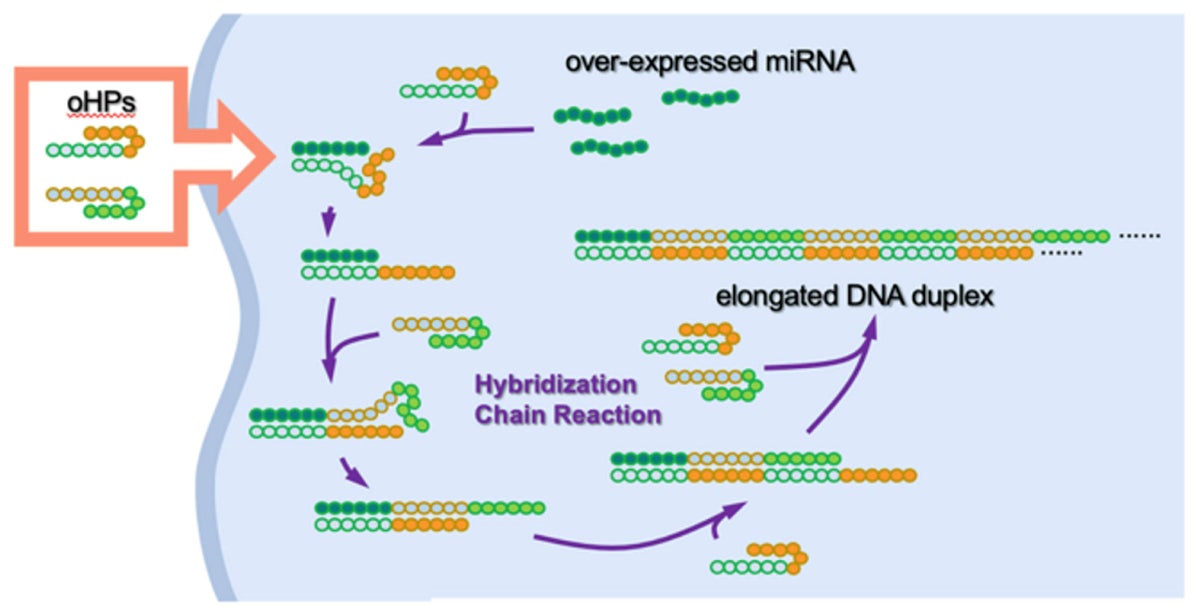
A new way of using DNA to kill cancer cells which could pave the way for a cure for the disease has been created by scientists.
The method targets human cervical cancer and breast cancer-derived cells, as well as malignant melanoma cells in mice.
It uses a pair of hair clip shaped, cancer-killing DNA which were injected into cancer cells.
When they were injected into them, they connected to molecules called microRNA which are overproduced in certain cancers.
Once connected to the microRNA they unravelled and formed longer chains of DNA which created an immune response.
The immune system recognised the overproduced microRNA cells as dangerous, which activated a natural immune response which killed the cancer cells.
The Japanese research team say their method is different from existing ones and could herald in a new era of breakthrough cancer drugs.
Cancer is sadly a familiar health concern and existing ways of treating it have their limitations, however drugs based on DNA and RNA are expected to help scientists eventually beat it.
This is because DNA and RNA are vital information-carrying molecules that can control the biological function of cells.
They are expected to transform the future of medicine and help cure other hard to treat illnesses caused by viruses and genetic diseases.
Using DNA and RNA to treat cancers has been difficult because it is hard to get them to differentiate between cancerous and healthy cells.
This means a patient’s immune system can be adversely effected if healthy cells are attacked.
However, this was the first time scientists were able to develop a hairpin-shaped DNA strand that can activate a natural immune response to target and kill specific cancerous cells.
Professor Akimitsu Okamoto from the University of Tokyo and an author of the study, said: “The results of this study are good news for doctors, drug discovery researchers and cancer patients, as we believe it will give them new options for drug development and medication policies.
“Next, we will aim for drug discovery based on the results of this research, and examine in detail the drug efficacy, toxicity and potential administration methods.”
The findings were published in the Journal of the American Chemical Society.







